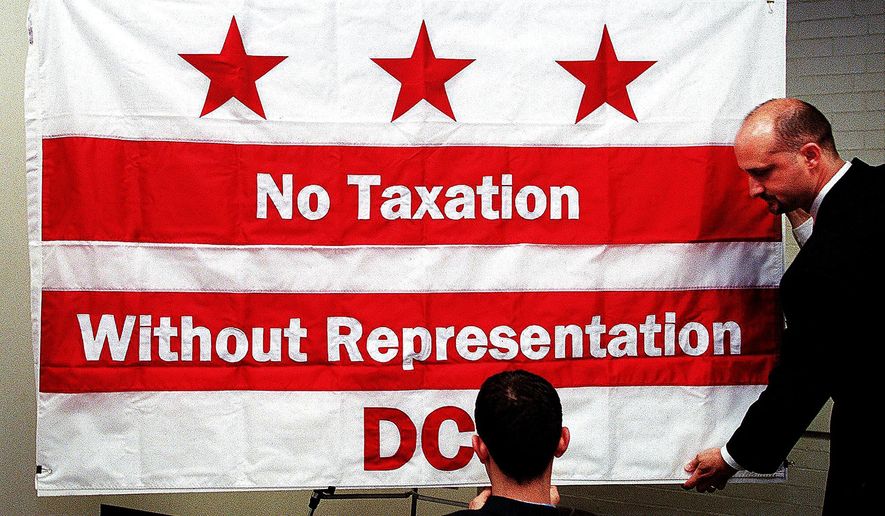The District’s top elected officials will join legal scholars on Capitol Hill Monday for the first congressional hearing on D.C. statehood in 20 years.
The “New Columbia Admission Act” would reduce the federal District of Columbia to an enclave of land including the National Mall and White House while the remainder of the city would become the country’s 51st state.
Monday’s hearing, at 3 p.m. before the Senate Homeland Security & Governmental Affairs Committee, will feature testimony from supportive local politicians including Mayor Vincent C. Gray, Delegate Eleanor Holmes Norton, D.C. Council Chairman Phil Mendelson and shadow senators Michael D. Brown and Paul Strauss. Also testifying are experts and legal scholars including former White House budget director Alice Rivlin; Georgetown University law professor and one of the chief architects of the Patriot Act, Viet Dinh; president of the Leadership Conference on Civil and Human Rights Wade Henderson; and libertarian Cato Institute scholar Roger Pilon.
Ms. Norton, the District’s nonvoting congressional representative, released her prepared testimony Sunday, in which she points out that “there are no financial, economic, constitutional or historical reasons that the 650,000 Americans who live in the District of Columbia should not be granted statehood.”
“Congress has two choices,” she says. “It can continue to exercise autocratic authority over the American citizens who reside in the District of Columbia, treating them, in the words of Frederick Douglass, as ’aliens, not citizens, but subjects.’ Or it can live up to this nation’s promise and ideals and pass the New Columbia Admission Act.”
Over the last two decades, politicians have introduced legislation multiple times that would grant statehood to the District and congressional representation to the city’s more than 640,000 residents. Previous attempts have died in committee, and the last time such a bill got a public airing on Capitol Hill was in 1993.
As a heavily Democratic city, the District faces an uphill battle over the legislation, which has not garnered bipartisan support. Seventeen senators have co-sponsored the latest attempt, including 16 Democrats and one independent. Meanwhile, in the Republican-controlled House, an identical bill has 107 cosponsors — all of whom are Democrats.
In a letter submitted to Sen. Thomas R. Carper, Delaware Democrat, who is holding the committee hearing, D.C. Council members seemed to acknowledge the unlikelihood that the bill would be adopted into law but urged action anyhow.
“Before the midterm elections, mark up this bill, move it to the floor and hold a vote in the Senate,” the letter states. “If we are not to have voting rights, we at least deserve to know who opposes our inalienable right.”
• Andrea Noble can be reached at anoble@washingtontimes.com.




Please read our comment policy before commenting.